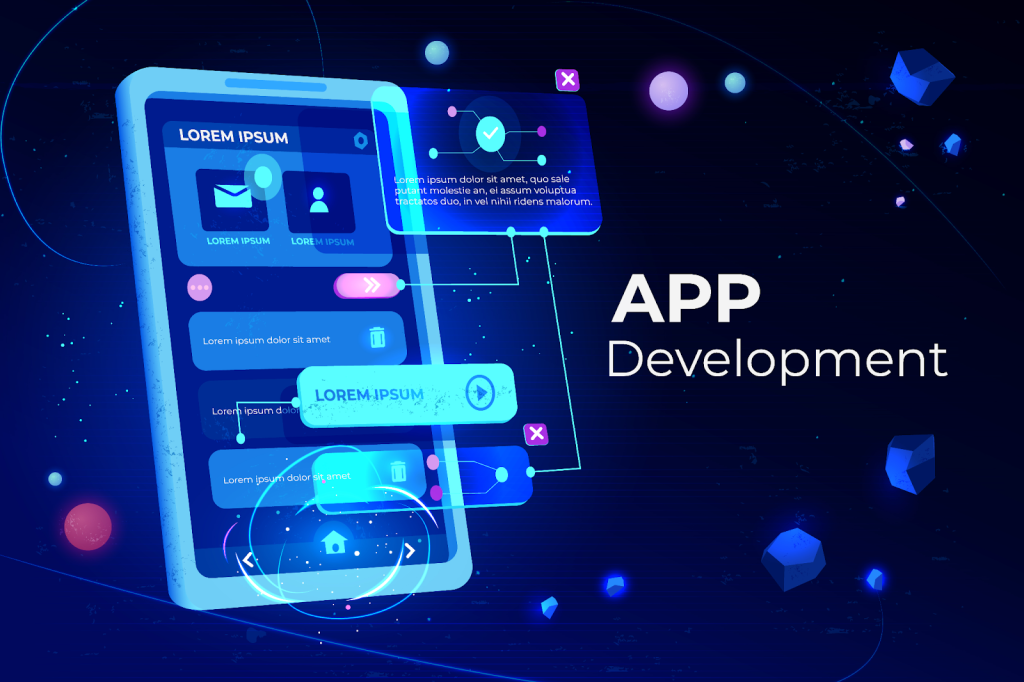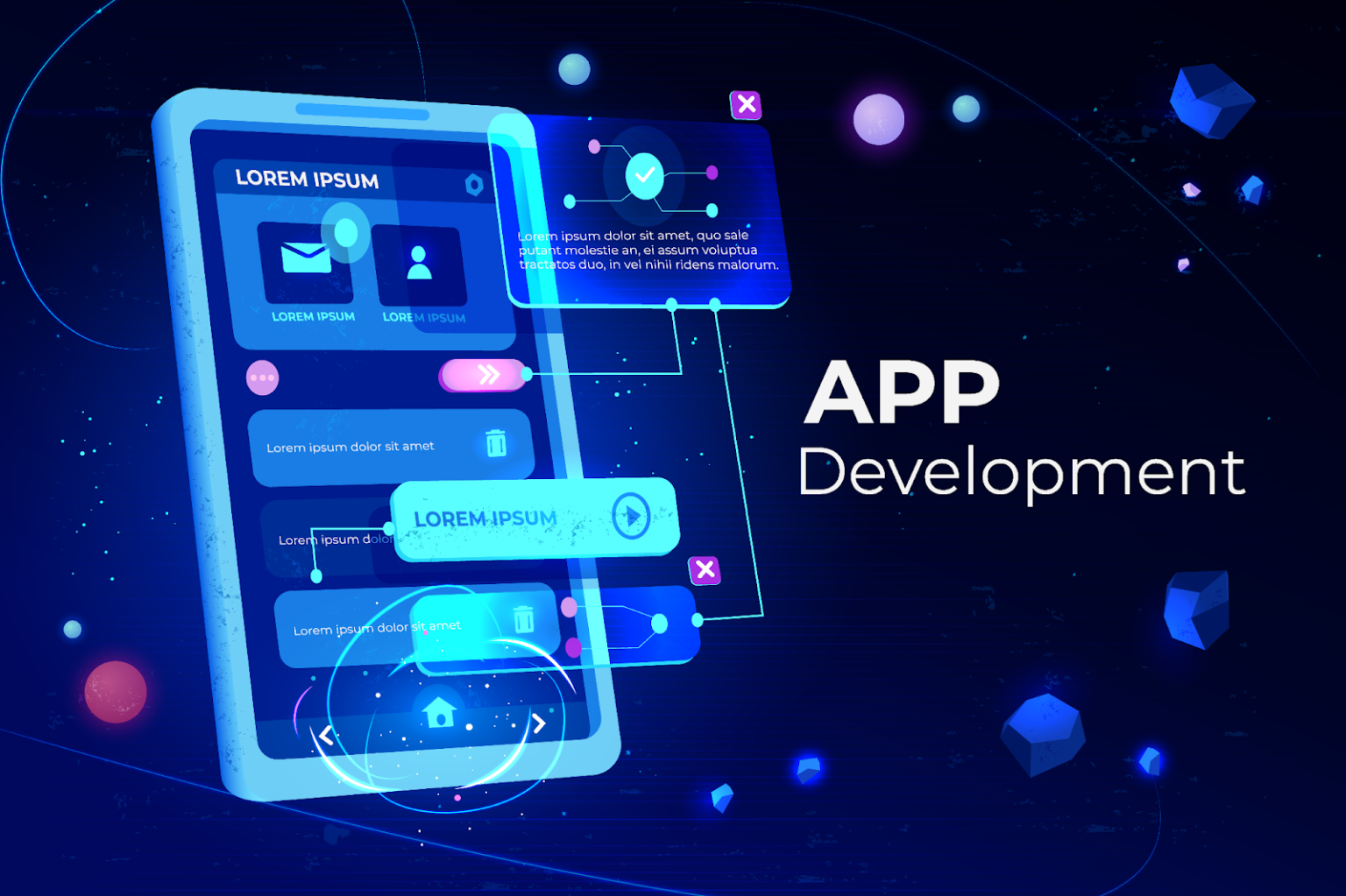As we move into an increasingly digital world, the concept of mobile app development costs in the UK has never been more relevant for businesses, start-ups, and entrepreneurs who want to succeed in 2025. Picture this: you’ve finally released the app you’ve always dreamed of, only to realize that hidden expenses are making your budget spiral out of control. This unanticipated financial sting could bring a fledgling business to its knees and you to your financial wits end. And to help you sidestep those pitfalls, a clear understanding of the financial reality of building great mobile apps isn’t just nice to have – it’s essential.
With the UK mobile app market set to exceed £15 billion by the end of 2025, keeping a tab on costs is no longer a nice to have – it’s a must have. The increasing dependence on mobile technology and the wider digital economy has intensified the competition, driving businesses to become more innovative at the same time as they keep costs low. In the midst of all these changes, having clear visibility into costs and trends doesn’t only help businesses to budget effectively, it also allows them to compete within a market that is changing at the speed of light.
Now, let us discuss in more detail each of the key factors you should take into account in order to get the budget to invest in your app project in the UK, so you can choose wisely for your success.

Crucial Factors that Influence App Development Cost in the UK
There are many things that affect the price of app development in the UK. They are as follows:
- App Complexity
UK app development costs are between £15,700 and £198,180+ and are based on complexity. A simple app is faster and cheaper to build, and has stripped down features with limited backend.
On the other hand, complicated apps require advanced functionalities (like user profiles or real time updates), bigger teams, and maintenance which leads to increased costs. Pricing is also determined by the location of the developer.
- Type of App
The development of an app costs in the UK between £15k and £50k depending on what kind of app you need.
Each category has its own set for features, design and back-end to support it and that affects the total effort and budget.
Understanding your app type helps you match your goals with technical and cost predictions.
For example, if its Healthcare & Fitness apps price will various from £25,000 to £80,000, for Real Estate apps – £20,000 – £70,000, E-commerce & Marketplace apps – £15,000 – £60,000.
- App Platform
Building an App Development Cost: Between £10,000 – £100,000 2. Mobile Application An app platform is the OS or environment the app runs. Mobile platforms can be divided into the following categories: Native, Cross-platform, Hybrid, and Progressive Web Apps.
These platforms form the foundation and provide tools, framework, rules of the road, etc to help build apps that work well in their ecosystem.
- App Design (UX/UI Complexity)
An intuitive User Experience (UX) / User Interface (UI) design results in reduction in the cost of development. (And – investing in user-centric design can lead to greater user engagement but that it is costly:)
Simple interfaces with a set of templates for basic design.
- Cost Range: £5,000–£10,000
- Example: Simple event app with simple navigation and limited custom graphics.
Advanced Design:
Fully custom interfaces, animations, interactive objects and custom visual assets.
- Cost Range: £15,000–£35,000
- Example: ASOS’s visually-exciting shopping app known for interactive design and captivating images
- App Features and Functionality
The quantity, nature and complexity of the features make an impact on your development budget. Consider:
User authentication and security:
- Cost: £3,000–£8,000
In-App Purchases & Payment Integration:
- Cost: £5,000–£15,000
Geolocation Services (Maps or Geolocation):
- Cost: £4,000–£10,000
Push Notifications:
- Cost: £2,500–£7,500
Advanced Analytics Dashboard:
- Cost: £5,000–£12,000+
For example : in the UK, uber’s app includes payments, geo-location, analytics, notifications etc making it feature rich and cost-heavy (beyond £100,000).
- Server and Back-end Environment Needs
It can cost anything between £10,000 and £100,000 or more to create a server and back end infrastructure. back-end serverIf you consider the mobile app as an iceberg,then below the water ( unseen ) it is server and back-end infrastructure are lying down code which manages the business logic, data administration,storage etc. The app back-end includes everything that the person who uses the app can’t see but that powers the app, including the server and database, as well as all the software that is run on them and that supplies the app’s functionality.
Backend is very important for apps which have user authentication, real time database, large database to load (like e-commerce apps, social media apps, cab services).
- Development Team: Freelance, In-House or IT Staff Augmentation
The development team you decide to work with can greatly affect cost and quality.
- Freelancers: Cheaper but a gamble – there is a chance they take on too much or just disappear.
- In-House Team: Dependable but costly – as in salaries, benefits and office space.
- IT Staff Augmentation: Get expert workers without the long-term overhead.
- Developer Location: UK-Based vs Offshore Hiring
App Developers UK hiring is significantly more expensive than the offshore hiring. With offshore hiring, you can hire highly skilled workforce at one-third of the cost (without sacrificing quality).
- Integration with Third-Party Services and APIs
For example, adding third-party service and app integration, within an app, can cost between £500-£5,000 per service. Third-party API integration is the practice of connecting an application to other apps or websites instead of straight-up building its functionalities.
- Maintenance and Continued Development
Post-launch expenses are often forgotten and can add up over time. Annual operating expenses are usually 15–25% of the developed capital cost.
Cost: £3000-£15000+ per annum
Example: Revolut needs to (read: has or will be legally obligated to) spend a lot of money just to maintain their security and be compliant, often tens of thousands of dollars year after year.
App Development Cost in the UK
If you’re designing a digital product in 2025, you’re likely to hear, “how much does it cost to make an app UK?” from businesses at some point. The solution will vary based on the size, complexity, and requirements of the app. When all is said and done, and taking into account the factors mentioned above, you might be looking to invest between £30,000 for a simple MVP and £100,000 for a feature-rich cross-platform application.
Let’s break down the app development cost in the UK with real data and projections:
| Category | Estimated cost (GBP) |
| UI/UX Design | £5,000 – £25,000 |
| Backend Development | £10,000 – £50,000 |
| Frontend Development | £10,000 – £40,000 |
| Testing & QA | £5,000 – £15,000 |
| Deployment | £1,000 – £5,000 |
| Maintenance (Annual) | 15-20% of Dev Cost |
As the need for AI integration, solid UX and abiding by data privacy requirements and standards continues to soar in the UK, UK app developers are busy delivering value – value that addresses the preferences of the modern user and aligns with business goals.
App Development UK is Booming
From London’s Silicon Roundabout to tech arenas in Manchester, Bristol and Edinburgh, 2025 is gearing up to be something of a game-changing year for digital innovation.
From startups to Fortune 500 you can now head to the App Store, and there are even solo entrepreneurs getting in on the app buzz, but the ride from concept to App Store is changing rapidly.
A More Competitive Market
In 2025, you can’t just throw up an app, even if you have a great idea. It comes down to having a really good strategy. No longer a nice-to-have AI is the base. Intelligence is expected in digital experiences, from chatbots to personalization algorithms.
British app developers are increasingly doing so as part of their core skills in response to demand for smarter, faster and more entertaining apps.
Anticipate further data-driven growth, where decisions come not from the gut, but are based on user behavior, predictive analytics, and perpetual A/B testing.
Preparing for a Post-Pandemic Economy
The cost of developing an app in the UK is also changing.
Talented new entrants on remote teams are now an accepted norm for flexible, global reach. But the UK’s inflation and cost-of-living increases have pushed up rates of growth in the domestic market.
By 2025, a high quality app should cost £30,000 to £100,000+ a range that covers complexity, platform and feature cut.
Privacy and Compliance: Designed In Not Tacked On
With GDPR here to stay, and increasing focus on data ethics, privacy is a no-brainer.
UK app developers are certainly keeping compliance in mind as they build out privacy-first design architectures from the ground up.
If your app deals with health, finance or location data, then you may have to consider compliance checks and additional security certifications.
User-Friendly Design: You Have No Choice
British users in 2025 want sleek, smooth digital experiences. Design priorities include accessibility and inclusivity. Your app should be friendly for everyone from Gen Z to Boomers, from English speakers to a multilingual base.
The best UK developers are focusing more on UX research, wire-framing and user testing within the build cycle.
Conclusion
Knowledge of mobile app development costs in the UK is an essential skill for businesses, startups & entrepreneurs wanting to keep ahead in the fast moving digital space in which we live and work. As we have seen in this extensive guide, the cost of developing an app is a lot more than the original quote, and thus depends on a range of factors, including platforms, application complexity, methods of development, emerging technologies, and hidden costs, such as maintenance, GDPR, and marketing.
The above future trends show that app development pricing in the UK is a constantly changing landscape, affected by economic factors, advances in technology, and the accelerating pace of industry competition. This is why it’s ultra important for the future prospects of your digital ventures that you can accurately budget and plan ahead.


